#Buddhism Zen Tao & Meditation
Photo

Buddhism, Zen, Tao & Meditation
"As I began studying Buddhist teachings and chanting more, it led me to take responsibility for my life and to base my choices on wisdom, courage, and compassion.Not long after I started chanting, I began to see that the power I needed to change my life was already within me."
-Tina Turner
254 notes
·
View notes
Text
Effort
Effort is not the flow. Trillions of your cells within your body are functioning without any effort. Each cell does what it can and able to do and accomplish. More like a flow. When the cell comes upon an obstacle, a blockage that prevents it from functioning, then it requires an "effort" to overcome it , or not. If is unable to overcome the obstacle, then a disruption has happened and a disease is more likely to occur.
With our 4D mirror, the ability to "read" and "observe" the 3D neural patterns by the different vibrations and frequencies from each different neural pattern, we have this "consciousness" of understanding the outside world. What is crucial to understand is that our 4D mirror can not create 3D thoughts. Can not create words. Can not create 3D neural patterns. Can not trigger neurons to spike and to be activated. Our 4D mirror can only "observe" and "read" 3D neural vibrations from neural patterns.
All our actions, all our thoughts, all our desires, all our fears, and all our emotions and reactions, are not caused by our 4D mirror, but from our 3D physical body! This is a profound realization! From your 3D physical body is all effort. The 4D mirror if pure is no effort, as then what is the cause of one's actions, thoughts, and beliefs?
If your 4D mirror is pure, then all your actions come out of this purity. There is no effort as then, instead of your reactions from memories, and experiences, your reactions are from the entire environment, and not from a set of past experiences, fears, desires, wants, and emotional triggers.
Effort is from your memories, wants, desires, fears, experiences, and expectations. Effortless is from the entire environment without any input from your past experiences, memories, desires, and fears. A pure mirror is the effortless as you then do what the now environment tells you what to do and no interpretation from your memories and emotions!
#wu wei#consciousness#atheist#mind#meditation#buddhism#spiritual#buddha#atheism#buddhist#hinduism#taoism#tao#daoist#dao#gnosis#gnosticism#mysticism#mystical#mystic#zen#christianity#purpose#meaning of life#thoughts#emotions#stream of consciousness#thinking#perception#illusion
4 notes
·
View notes
Audio
Listen/purchase: Tibetan Healing Chants by Drukmo Gyal


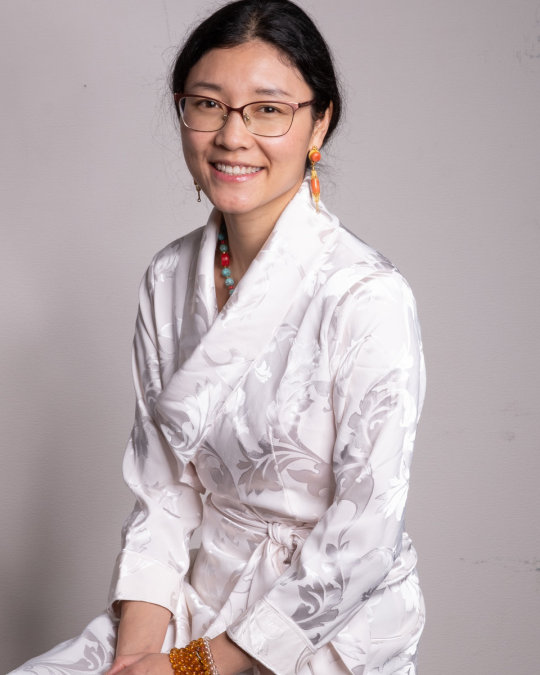
6 notes
·
View notes
Text
i'm sure i'm not the first, but here's a playlist of spiritual lofi mixes. because i like both of these things and i am amazed this exists.
0 notes
Photo

If you find that you're quite reactive, or angry, a bit of a 'blamer' when you're frustrated then I have a story for you which you can reflect on to find your own meaning. This is a Zen story about an empty boat, that is also referenced in the Taoist poem 'The Empty Boat' by Chuang tzu. A monk is finding it difficult to meditate, so he takes a boat out to a lake with no one around. There he finds peace, serenity and is able to meditate among the calm waters. As he is meditating a boat hits into his with a crash, infuriating the monk. In his anger he yells 'who would crash into me and disturb my meditation?' But when he looks, he finds that the boat is empty. If there was a person in the boat, he would continue to yell but as it is empty and there is no one to blame then he calms. Some gave interpreted this to suggest that the anger we feel is generated by ourselves and not others. Some say we should be more like the empty boats and that in doing so, we will avoid harm as those shouting at us will not cause us grief. What do you take from this story? #mindfulness #meditation #zen #tao #story #parable #philosophy #reflect #thought #meaning #life #empty #wellbeing #mentalhealth #anger #blame #poem #buddhism https://www.instagram.com/p/Clic0rANK9W/?igshid=NGJjMDIxMWI=
#mindfulness#meditation#zen#tao#story#parable#philosophy#reflect#thought#meaning#life#empty#wellbeing#mentalhealth#anger#blame#poem#buddhism
1 note
·
View note
Text
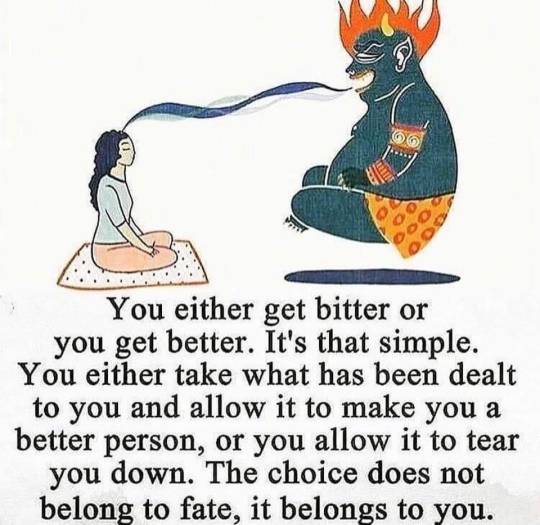
Buddhism Zen Tao Meditation
Regina Velásquez
97 notes
·
View notes
Text
Bibliography
All the Buddhist books I have taken notes from, with links if they are available free online. Updated 02/26/24.
After the Ecstasy, the Laundry: How the Heart Grows Wise on the Spiritual Path by Jack Kornfield
Awakening the Buddha Within: Eight Steps to Enlightenment: Tibetan Wisdom for the Western World by Lama Surya Das
Buddha's Brain: the Practical Neuroscience of Happiness, Love & Wisdom by Rick Hanson, Ph.D., and Richard Mendius, M.D.
Buddhish: A Guide to the 20 Most Important Buddhist Ideas For the Curious and Skeptical by C. Pierce Salguero
Buddhism Without Beliefs: A Contemporary Guide to Awakening by Stephen Batchelor
Dhammapada: The Sayings of the Buddha translated by Thomas Byrom, Shambhala Pocket Classics 1993 (There are A LOT of versions of this online, but not this particular edition)
Enlightenment is an accident: ancient wisdom and simple practices to make you accident prone by Tim Burkett
Happiness is Overrated: Simple Lessons on Finding Meaning in Each Moment by Cuong Lu
How to Raise an Ox: Zen practice as taught in Zen master Dogen's Shobogenzo by Francis Dojun Cook (2002)
How We Live is How We Die by Pema Chödrön
Illumination: a guide to the Buddhist method of no-method by Rebecca Li
Love for Imperfect Things by Haemin Sunim
"Living my vow," by Zenju Earthlyn Manuel in Lion's Roar, March 2021.
Nothing Holy About It: The Zen of Being Just Who You Are by Tim Burkett
Novice to Master: An Ongoing Lesson in the Extent of My Own Stupidity by Soto Morinaga
Opening to Oneness: A Practical & Philosophical Guide to the Zen Precepts by Nancy Mujo Baker
The Other Shore by Thich Nhat Hanh
Shambhala: The Sacred Path of the Warrior by Chögyam Trungpa
A Spiritual Renegade's Guide to the Good Life by Lama Marut
Start Here Now: An Open-Hearted Guide to the Path and Practice of Meditation by Susan Piver
The Things You Can See Only When You Slow Down by Haemin Sunim
The Three Pillars of Zen: Teaching, Practice, and Enlightenment by Roshi Philip Kapleau (I read the 25th anniversary edition and this is the 1967 version)
Wake Up: How to Practice Zen Buddhism by Bonnie Myotai Treace
Walking the Way: 81 Zen Encounters with the Tao Te Ching by Robert Meikyo Rosenbaum
The Way of the Bodhisattva by Shantideva, revised translation and new preface by the Padmakara Translation Group (2006) (This is another one that is widely available online in other editions.)
When Things Don't Go Your Way: Zen Wisdom for Difficult Times by Haemin Sunim
Zen and the Art of Anything by Hal W. French
Zen Beyond Mindfulness: Using Buddhist and Modern Psychology for Transformational Practice by Jules Shuzen Harris
Zen Flesh, Zen Bones by Paul Reps
Zen Mind, Beginner’s Mind by Shunryu Suzuki (Link goes to a book that is listed as the 2006 ed but it looks identical to my 2002 edition)
46 notes
·
View notes
Text
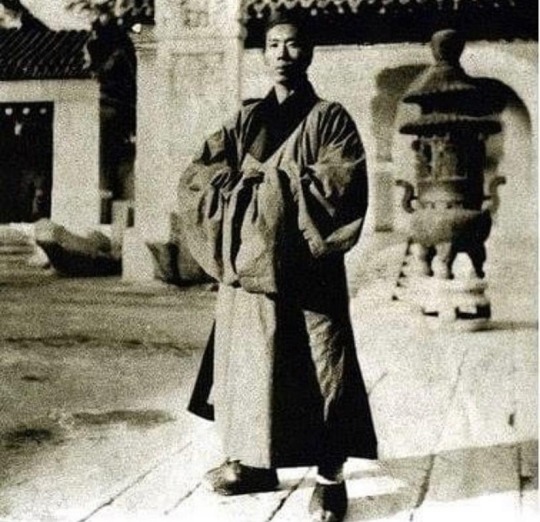
Fill the Joints with Chi
Taoist believe that the joints can store energy, like the bones and organs. When the joints are filled with chi, they operate more effectively and provide cushion between the bones. Tai chi is a wonderful exercise for improving the joints. If you don’t know Tai chi, it’s ok. Chi kung exercises are similar to tai chi but are shorter, easier to learn, and can be more focused . Thus, if we find a chi kung exercise that focuses on a specific part of our health, we can practice this for 30, 60, or 90 days and watch our health improve.
A simple chi kung exercise for the joints begins with the hands resting at the sides of the body. On the inhale, open all of the joints, starting with the toes, move up to the ankles, knees, hips, shoulders, elbows, wrists, fingers, and even the sternum and plates of the head. On the exhale, let the joints relax and the breath/energy from the inhale can rest into the joints. As we become more familiar with this technique, all the joints can open at once on the inhale and then relax at the same time on the exhale.
Learn more:
The Alchemist's Tao Te Ching:
Transforming Your Lead Into Gold
https://www.amazon.com/dp/1718636970/ref=cm_sw_r_cp_api_glt_fabc_K2K89B59GRGY1HW19NSW?_encoding=UTF8&psc=1
#tao #taichi #zen #chikung #meditation #yoga #reiki #shiatsu #taoist #taoism #massage #spirituality #buddhism
#mindfulness #fengshui #taoteching #kungfu #martialarts #chinesemedicine
27 notes
·
View notes
Text
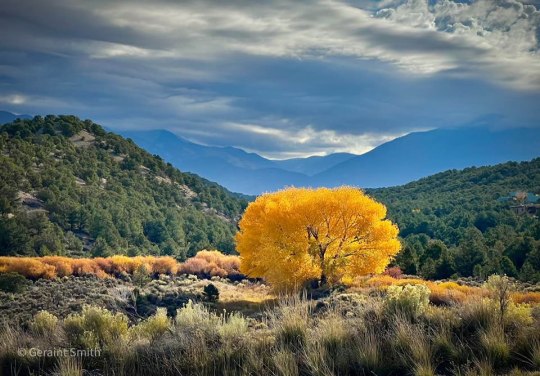
Geraint Smith: Today in northern New Mexico. My most favorite cottonwood. Arroyo Hondo, Taos Co, NM. (Oct 24, 2023) :: [Robert Scott Horton]
* * * *
Mono no aware (物の哀れ),literally “the pathos of things” Rich with meaning and subtlety, the soul of Mono-no aware is often difficult to successfully describe in words. However, the almost untranslatable term refers to the melancholic realization that everything is temporary. It is the awareness of the fleeting nature of things. Literally translated to “the pathos of things”, it means an empathy or sensitivity towards things that transient and last only for a short period. This Japanese phrase for awareness of impermanence involves both feelings of joy and sadness as this is the truth of life.
Whether it’s the changing of seasons, the fading of youth, or the impermanence of love, all things should be cherished for their transitory nature instead of being mourned. When we learn to do that, we learn to appreciate the true beauty of everything.
Mono No Aware can be best explained as “the ephemeral nature of beauty.” It refers to the subtle bittersweet feeling you experience when you are aware that nothing is meant to last forever, no matter how good or bad. It is characterized by our appreciation and heartache of the transient nature of things, people, love and even life
[Vanja Vanja]
(Buddhism Tao Zen and Meditation)
#Geraint Smith#New Mexico#Rober Scott Horton#Mono no aware#the pathos of things#Vanja Vanja#Buddhism Tao Zen and Meditation#meditation#changing seasons#ephemeral#bneauty
8 notes
·
View notes
Text
Morning Meditation — Ordinary Mind is Tao.
Morning Meditation — Ordinary Mind is Tao.
https://wp.me/pFy3u-8ha
‘Ordinary Mind is Tao. Hundreds of flowers in spring, the moon in autumn.’
Zen Comments on the Mumonkan.
Winter Jasmine.
On our Twitter account, Buddhism Now @Buddhism_Now, most mornings we post a ‘morning meditation’ like the one above.
On the net, of course, it’s morning, afternoon, evening, or nighttime 😀 somewhere.
Click here to read more Morning Meditation posts.
More from the…

View On WordPress
0 notes
Text

nonduality #meditation #spirituality #spiritualawakening #awakening #advaita #consciousness #enlightenment #awareness #love #mindfulness #spiritual #ramanamaharshi #yoga #zen #selfrealization #oneness #buddha #tao #nisargadatta #advaitavedanta #nisargadattamaharaj #spiritualit #ramana #peace #wisdom #nondual #buddhism #taoism
0 notes
Link
Answering the question, because nobody asked, what if Love was a for-profit computer service?
0 notes
Text
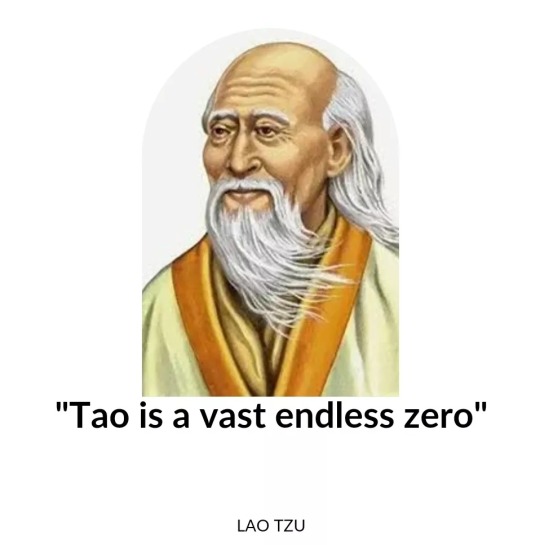
LAO TZU[TME SUTRA -3]This Sutra stated that Tao is the soul of time and space and filled with magical endless possibilities..
FOR MORE VISIT THE LINKS BELOW:
YOU TUBE LINK:
https://youtu.be/uUnNdkqpC5M
BLOGGER LINK
:https://vinu2203.blogspot.com/2021/07/lao-tzu-sutras-by-deep-trivedi.html
FOLLOW THEM.ON FACEBOOK:
https://www.facebook.com/deeptrivediblog
#laotzu #buddha #meditation #quotes #osho #laotzuquotes #taoteching #tao #wisdom #philosophy #rumi #zen #taoism #eckharttolle #love #alanwatts #buddhism #mindfulness #sadhguru #dalailama #mooji #yoga #motivation #awakening #philosophyquotes #spiritualquotes #ramdass #spirituality #spiritualawakening #thichnhathanh#@deeptrivediblog
#@laotzuquotes
0 notes
Text

The Unknown Wanderer
was asked about wu wei
and about what happened
to the Tao in this group
He simply smiled and asked
of everyone and anyone
Show me where Tao is not…
When One flows with Tao
it is like moving everywhere
in wu wei meditation always
‘What form, what style
people ask…
How long, silent, chanting
Sitting or special yoga
in specific poses with
techniques to master ? ‘
The Sage simply replied,
“Don’t ask me about
Tao or meditation
Ask me what is not
Tao or meditation
I sit anywhere,
Tao is there
I meditate there
I stand anywhere,
Tao is there
I meditate there
I walk anywhere,
Tao is there
I meditate there
Everything I do
Everywhere I go
Everyone I see
Tao is there
Everything flows
in wu wei meditation “
epc 1956-♾
Jiangyou Figure Hill
Temple Bridge
Zen Taoism Buddhism Tick Nhat Hanh Dalai Lama
9 notes
·
View notes
